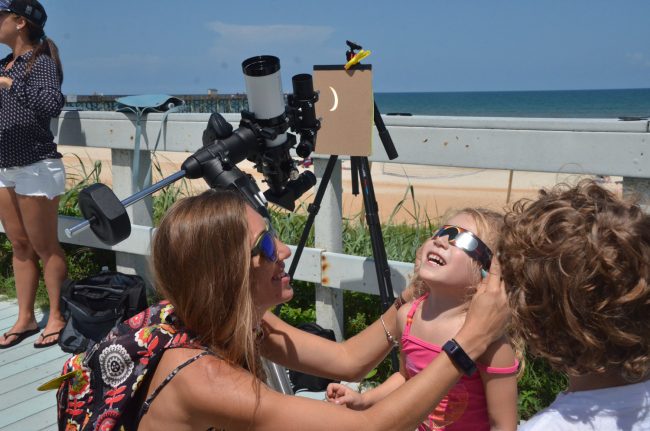
Flagler County couldn’t have asked for a more apt coda to its centennial, a centenary gift from moon and sun under a radiant sky.
It came with a slow tide of people who gradually crowded the boardwalk in Flagler Beach as the moon’s disk took on the sun, nibbling at it starting a little after 1 p.m., peaking a little before 3 p.m., when it got grayishly dimmer and chillier and quieter as when a storm is gathering but without clouds, but never really darkening, and then it went, a tide of people going back out, necks uncraned, squints slackened, eyes leveled again with the disenthralled glare of the everyday.
But for about an hour and a half this afternoon, and even though the great eclipse was never complete in this region, eyes were those of Icarus, peering as close to the sun as sun and equipment and patience allowed, their beholders reveling in a once-a-century experience that was ending on the southern east coast after starting in the Pacific Northwest in the first arc of its kind since 1918.
Like Daniel Craft, who’d pulled his third-grade daughter Kiley out of Old Kings Elementary to see the eclipse. “It’s just an experience I would probably only get to experience with her once,” Craft said. “This might me my last time. I don’t know when the next time is. I might not be around.” Actually, he’s young enough to see several more, with a pretty good one going from Texas to Maine in 2024, though the next Great American Eclipse—the next one to cross the entire continental U.S., west to east, as today’s did—won’t happen again until Aug. 12, 2045. But that one will be total right about here in Flagler.
“It didn’t really get as dark as I thought it would,” said Eric Cooley, owner of the Flagler Beach 7-Eleven, whose stack of ISO-rated glasses had sold out long before the eclipse.
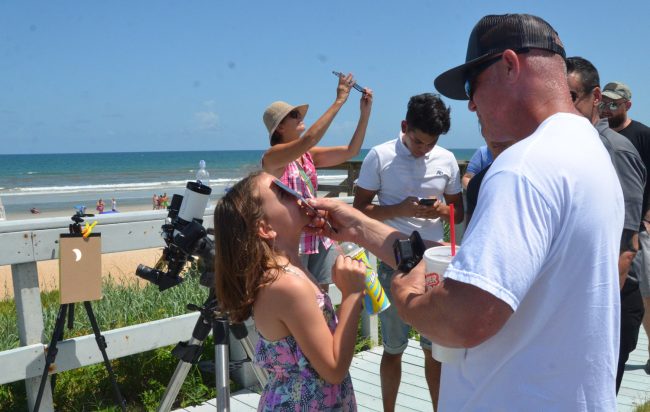
“Just wait three or four hours,” went Scott Spradley, the Flagler Beach attorney and photographer who was really the reason people were gathering at that spot.
He’d set up his refracting telescope there, projecting a large, sharp reflection of the sun on the back of a legal pad hanging on a tripod. The set up enabled him to skip on glasses altogether. He didn’t trust them, and several times declined Cooley’s offer to try his: “If there’s a defect, there’s no amount of money that would compensate me for my eyesight,” he said. The set-up also enabled anyone who passed by to watch the eclipse with the naked eye and clearly see the moon’s barely perceptible advance on the sun become more assertive to the point of reducing the sun to a moon-like crescent. It was like a small version of a boardwalk IMAX, a slow-motion astral ballet routine between earth’s two most visible neighbors that was anything but routine.
So groups of people would walk by, stop, stare gratefully, wonder about how it worked, alternate between whatever contraption they’d rigged to look at the sun—from welder mask to cereal boxes to eclipse glasses to cheese grater—and looking at the refraction, pausing next to it for pictures as they could not with the sun and moon above, and just standing there to chat with other strangers.
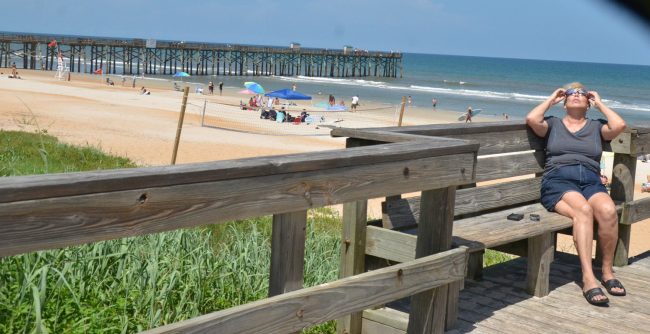
In Flagler Beach there weren’t large single gatherings as there were on college campuses, in stadiums, in big city parks, but there were parties, as at Tortugas, Scott Fox’s restaurant on A1A where Fox decided to hand out free eclipse eyewear and make an event out of it. “I thought it’d be a fun party,” he said, though he’d not expected it to draw that many people on a Monday. It did. Just as the moon had begun its conquest of the sun, he was writing on a big board that he placed outside that Tortugas was out of glasses. “We just got a little bit bigger than we expected,” Fox said. The place was teeming.
Back around the Spradley IMAX Police Chief Matt Doughney stopped by for a moment, likely relieved to be working a different kind of unusual beat: the previous evening the Flagler Beach bridge was closed when a plane crash-landed on its eastbound lanes. The spirits of the coming eclipse were already looking over the two occupants and their dog: No one was injured. This afternoon, Doughney said he expected “no wolves, no vampires,” he said, “just looking forward to something that hasn’t happened for 38 years. We want people to heed the warnings and be safe.”
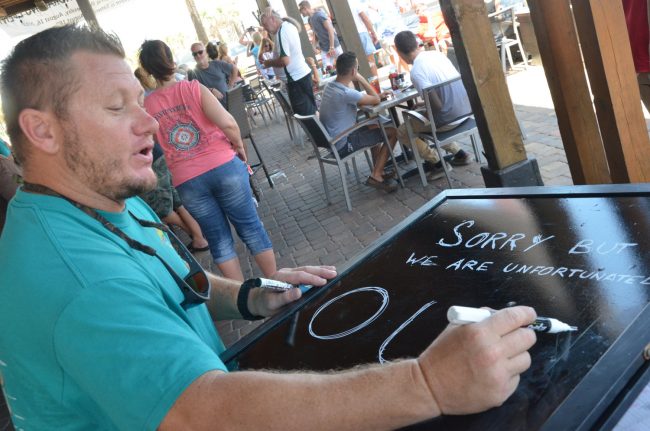
And so the slow stream of strollers continued as it got darker, a huge thunderhead to the northwest rising, threatening, even flashing with lightning, but never getting close to the sun and the moon, who enjoyed a big swath of blue sky all to themselves for the duration of their tryst.
On the beach, a majority of sunbathers somehow never bothered looking up, as if waiting out the moon’s intrusion on their worship service. And a little after 3 p.m., as the moon was in full retreat and light again stared baking the world below, the town got back to its more normal Monday pace, which in Flagler Beach is really not that different from its Sunday pace. Icarus’s wings had melted.
![]()
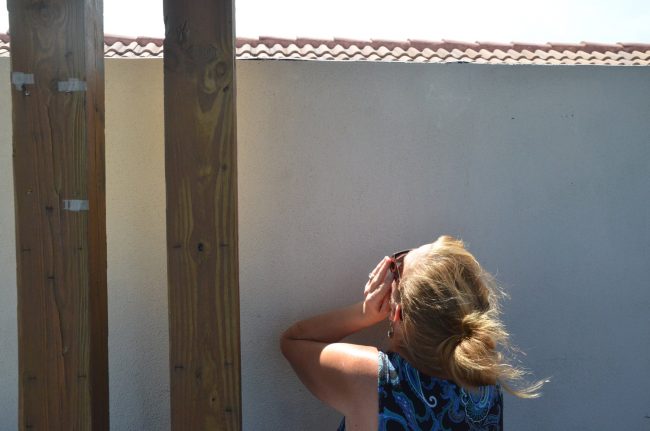
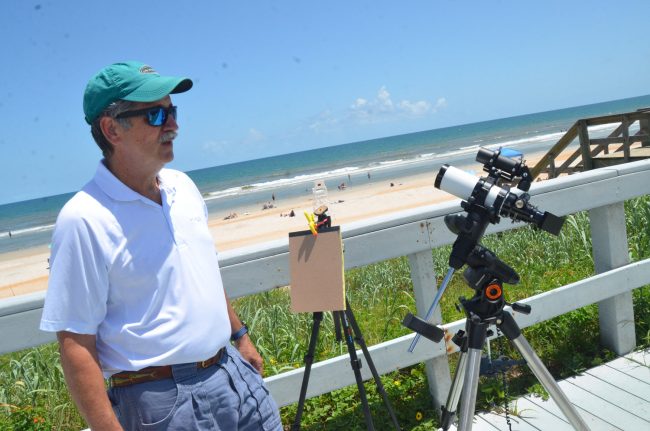
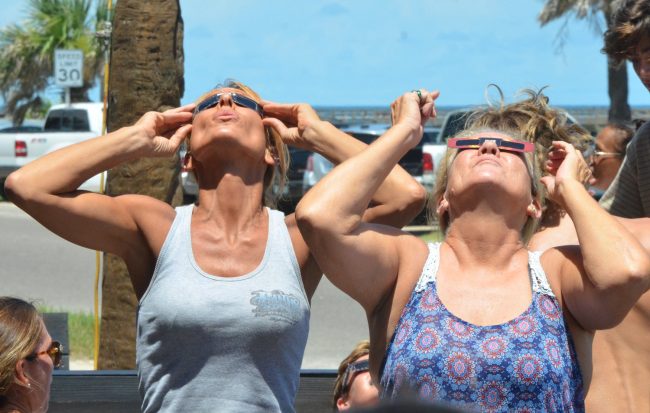
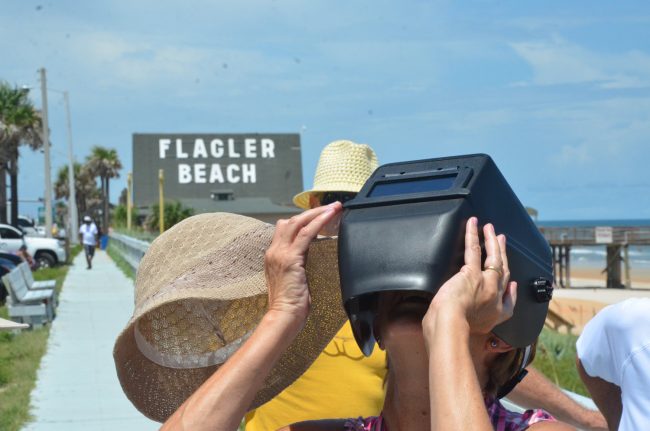
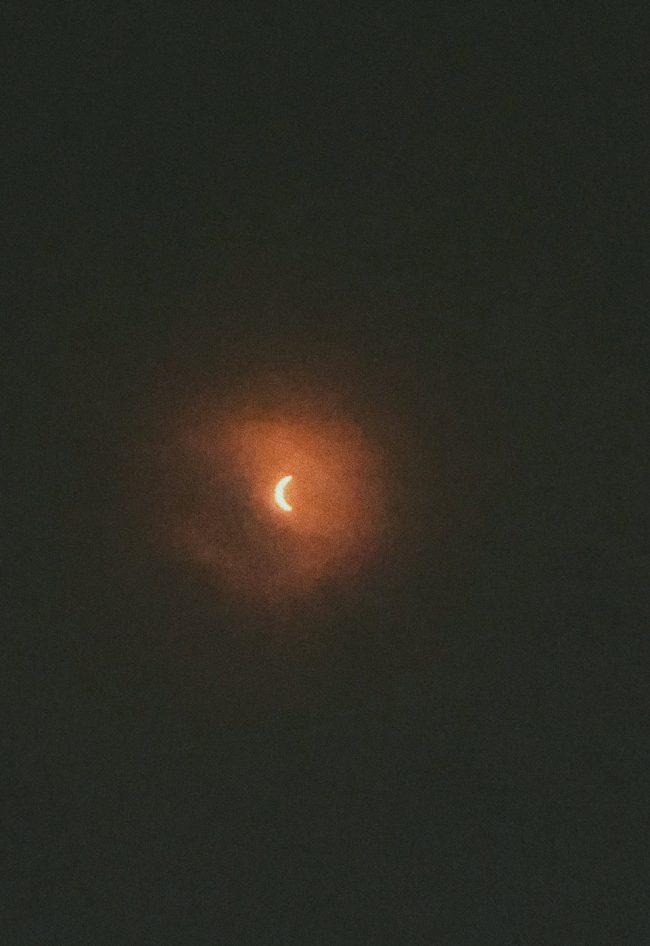
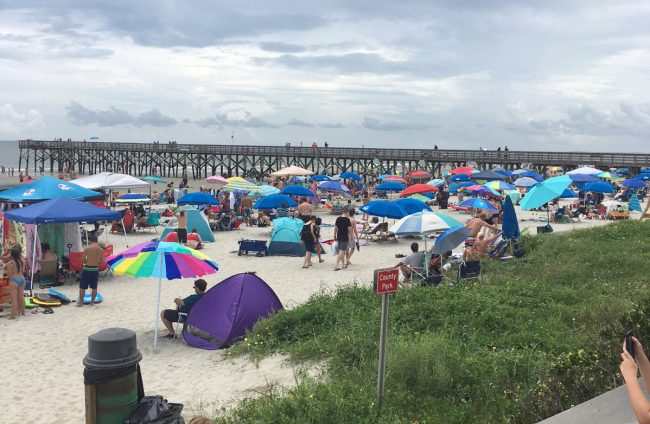
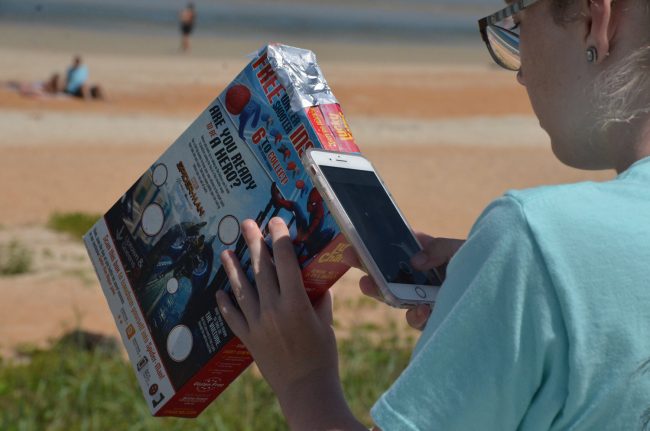
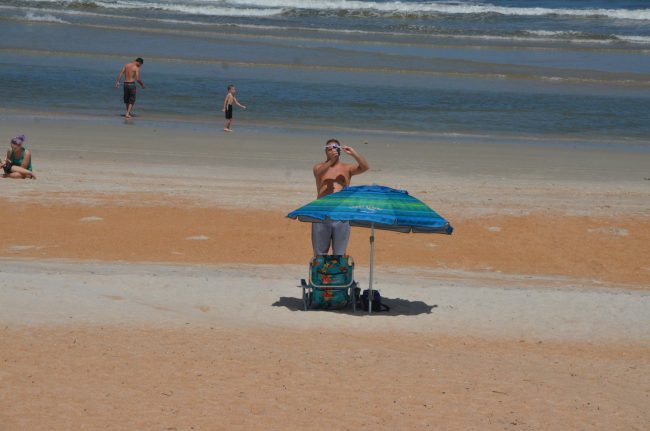
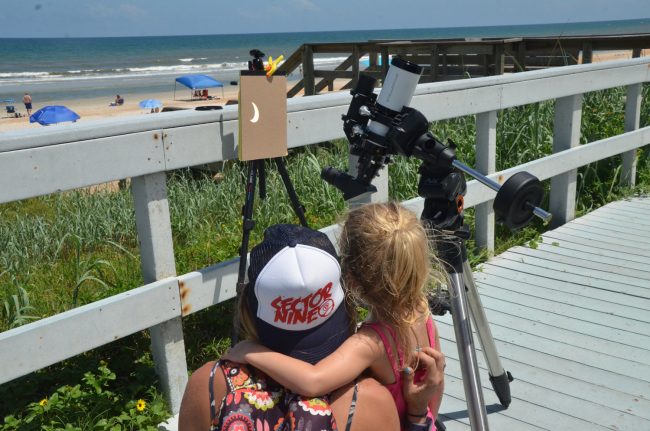





























Scott says
Thank you to everyone for coming out and having a great time today!